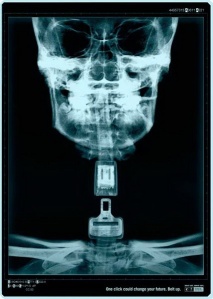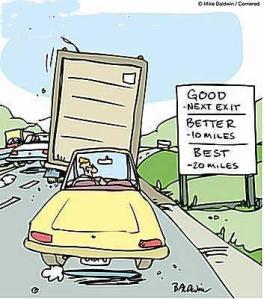Blog Archives
Mindjam! Don’t make traffic woes your own
 If you are the least bit ambitious in this day and age, you probably are grappling with tall schedules. Our social and personal lives are characterized by a series of dates, appointments, meetings, outings, and some. Our ‘to do’ lists end up looking more like essays than just pointers. Maintaining the mad schedules, juggling tasks with mere minutes between each, can be a challenge.
If you are the least bit ambitious in this day and age, you probably are grappling with tall schedules. Our social and personal lives are characterized by a series of dates, appointments, meetings, outings, and some. Our ‘to do’ lists end up looking more like essays than just pointers. Maintaining the mad schedules, juggling tasks with mere minutes between each, can be a challenge.
I am sure most of you would identify with this craziness that is urban living, and not discard them as exaggerations. A common result of falling back on that challenging ‘to do’ list is falling back on life. But for most of us, there’s hardly a choice. The other thing to do is strive to stick to our plans, and acquire a lot of stress in the bargain. This stress, resulting out of personal, social and professional obligations, is experienced right from the time children come to their senses, enough to be enrolled in nursery schools and probably does not end with retirement. And ironically enough, the retirement pensions, funds, insurances are perhaps responsible for the unceasing stress.
However, for the sake of our well-being, emotional as well as physical, there are times when this stress should take a back-seat. Your life, literally, depends on it! How? Your emotional and mental state directly reflects on your driving. You may be in a haste to make it to a meeting or you may have had a showdown in your personal life. What do you do? You drive recklessly, breaching traffic rules, and answer calls while you are at the wheel. It is, therefore, important that you remember your car is not your punching bag or a place of socializing or even your place of work! It is only a mode of transportation and nothing beyond that. It is your binding responsibility to drive carefully, respect all traffic rules for your well-being, as well as of others. An accident is the last thing you want in your already stressful life.
More often than not, mental stress and distractions cause bad driving and traffic jams, and in unfortunate extremes, accidents. The noise pollution and commotion only add to the stress. In these terrible traffic conditions, how you maintain your calm, and your life, is in your hands. Remember that you are not personally responsible for these jams, and your anger won’t solve them. Positive approach is the key. Don’t make traffic woes, your woes.
Responsible Driving : Think Before You Speak
Distracted Driving, commonly known to us as “texting or talking while driving” is a major factor causing accidents on road. Use of hand-held mobile phones while driving is banned in Japan and New York State since 1999 and 2001 respectively. ‘Distracted Driving’ must become totally uncool and socially unacceptable like drunk driving especially among teenagers. Here is an insightful article which throws light on the steps taken to prevent ‘Distracted Driving’. Click here: http://econ.st/gffvPW to read.
Practice Safety on Roads, Enjoy Safe Tea at Home!

Ambitious, astute, competitive, hard working, and tech-savvy – some adjectives that well describe this day and age. People of all ages today can be described thus, and future generations will only be more so.
This competitive society compels you to strive to be exclusive, adaptive and the ‘best’ in every walk of life. One who displays these dynamics, is defined as successful. One competes for getting the best job, at the best company, with the best designation…all the way to getting the best clothes, cars and gadgets. ‘Best’ is a superlative that people try to achieve for their happiness, and that of their loved ones. It is this ‘best’ that helps us secure the future of our families.
The roots behind this ‘best’ remain the basic instincts of security and safety. Hence, the boom of insurance – financial insurance, medical insurance, property insurances, etc. The bad news, however, is that minor facets of our daily routine, which call for utmost care, cannot be insured. Road safety is perhaps the best example of this. One reckless driver is a danger to all on the road, including his own. The big question is, are we conscious of our families and their future when we drive?
Sure, your car insurance will get you the cash for another vehicle. But will your life insurance get your life back?A rough day at work does not permit you to endanger valuable lives, since it is, after all, your family you work hard for. And they deserve your coming home after a long day, and sharing your life with them.
Blessed as you are to have loved ones, take an oath today to buckle your seat belts, switch off your mobile phones and follow traffic rules when you drive. Practice them, and ensure safety in this city full of hustle-bustle…ensure the the smiles of your loved ones. Remember, hard work pays off, only when you can share it with your them.
Steps taken in other countries for effective traffic management – Part 2
With rapid development and proliferation of technology, there has been an equally massive surge in urbanization. According to a number of researches, in the year 2007, for the first time in history, the majority of human population, the world over, lived in cities. This is certainly a massive landmark, and yet, urbanization is happening just as strongly.
Most of the population in cities drives cars, and their number is only expected to rise. Sadly enough, this has also led to an increase in road accidents, and the injuries and deaths they cause. This is a situation which calls for immediate, effective solutions. We must ask the question, “Can our transportation infrastructure and management approaches handle this rise?”
To this end, globally, officials are implementing changes in Road Safety Management. Let’s continue our investigations of some of the more effective ones:
In Stockholm, a dynamic toll system has played a vital role in controlling the flow of vehicles into the city. It has reduced traffic by 20%, decreased wait time by 25%, and cut emissions by 12%.
In Singapore, sensors are installed to measure and predict traffic scenarios, with 90% accuracy.
In Kyoto, city planners study huge traffic situations, involving thousands vehicles, to analyze the impact of urbanization.
In Bangkok, during certain hours of the day, the direction of the traffic on many one-way roads is changed.
Manila has a rather peculiar way controlling traffic. In heavy traffic, vehicles with number plates ending with the numbers 1 and 2 are forbidden from operating on city roads on Mondays, between 7 am and 7 pm, to reduce traffic jams.
Bermuda has gone ahead – imposing similar bans on rental cars.
The Romanians have been very proactive. Logic dictates that in the time-gap in which the accident takes place and the paramedics arrive, a lot can be lost. The Romanian Red Cross, a partner of the Global Road Safety Partnership, addressed this issue by training people on first-aid. The goal is to compliment the efforts of the paramedics, and boost the chances of survival of accident victims.
Remember the walking cars of The Flintstones? Sure you do! The concept exists even today. Students in South Africa get on a ‘Walking’ school bus, and walk in pairs behind an adult driver who directs the route between home and school. Physical fitness, clean and pollution free environment, and strong community relations are only few of the pros of this age-old concept.
If one country uses buses without wheels, another changes the name of its town to promote road safety. Strange but true – a town in Australia, named Speed, decided to modify its name to Speed Kills, to promote road safety. On Facebook, a campaign was launched for the name change, and it was decided that if the campaign received at least 10,000 ‘Like’s, the town would be renamed. It achieved over 33,000.
In conclusion, we can say that effective urbanization needs at its heart an effective transportation system. This increases the emphasis that must be laid on road safety. Let us work towards not just getting better roads from point ‘A’ to point ‘B’, but making sure we can travel those roads safely. ‘Smart’ traffic systems can be the key to reaching this goal, but, in reality, it will be achieved only when individuals make efforts.
The Road to Change – On a mission to save lives!
Dr. Sheela Aggarwal is a gynecologist and she has an urgent patient that she needs to attend. She looks tensed and is constantly giving instructions to her subordinates over the phone. In between she is also asking her driver to move fast. But every time she gets the same answer “Madam traffic hai.” It took her almost 3 hours to cover a distance that could have been covered in an hour otherwise. Inspite of trying so hard, she could not make it on time.
Most of us have gone through a similar situation where we could not make it on time because of traffic and thus, have suffered. Traffic is the latest nightmare of Indian cities. The collapsing infrastructure and growing number of vehicles are causing deaths, loss of mental peace, health crisis & economic loss. Road traffic injuries are a neglected epidemic in India and as studies suggest, by 2020 road accidents will be the 3rd most important health hazard worldwide. AIDS being 10th and World War being 8th.
We are “The Road To Change,” a non-profit organization and we believe that the cause of this epidemic is lack of awareness and training. People in India are not properly trained or aware about the importance of being disciplined. Thus, it is our mission to reduce traffic fatalities and injuries and the consequent personal and financial losses by developing a public and private partnership to promote the best driving practices, enforcement of traffic regulations and ideal management of traffic infrastructure.
Understanding the importance of traffic management, we plan to interact with government authorities and private organizations to obtain their support and involvement. But we believe that it is not possible without creating awareness of traffic issues and the need for enforcement of driving regulations. The Road To Change also wishes to supplement/assist all regulatory authorities in activities of traffic discipline, control, technology, enforcement and response to various public issues. We are here to promote and encourage disciplined driving and pedestrian movements and work towards facilitating such efforts.
We believe that creating awareness is an important step toward building commuter’s understanding, influencing opinion and motivating behavior.
As Dan Bellack says “Life is too short for traffic” so, let’s not waste our lives on road.
Do you agree with this statement?



